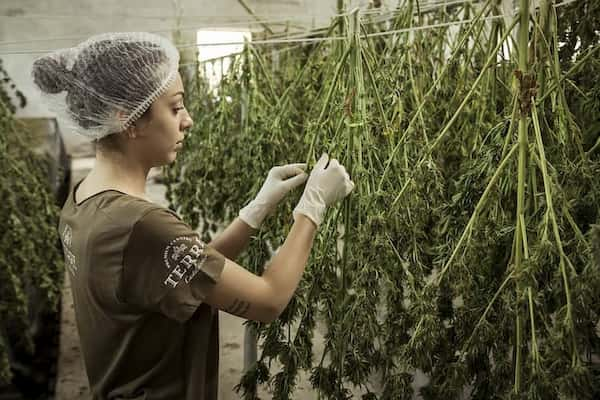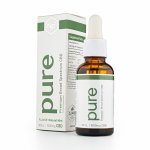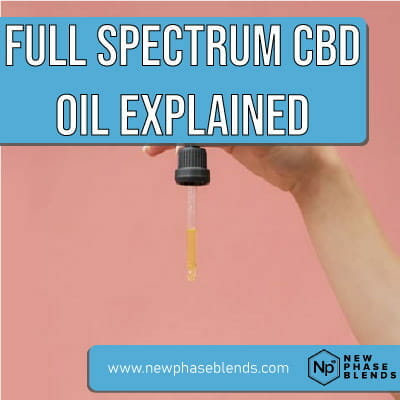Cannabidiol (CBD) is one of over 100 cannabinoids found in cannabis plants. These naturally occurring compounds, known as phytocannabinoids, each possess unique properties and potential therapeutic effects. While CBD products can be derived from various cannabis plants, legal CBD products in most regions are specifically extracted from hemp plants, which contain very low levels of THC (tetrahydrocannabinol).
Full Spectrum CBD Oils: A Deeper Understanding
Full spectrum CBD represents the most complete form of hemp extract available in the market today. This type of CBD contains all cannabinoids naturally present in the hemp plant, including trace amounts of THC (up to 0.3% by law in most regions). The complete profile includes multiple cannabinoids such as CBD, CBG, and CBN, along with terpenes, flavonoids, essential oils, and other beneficial plant compounds. The legally permitted trace amounts of THC (≤0.3%) contribute to the overall therapeutic profile while remaining below psychoactive thresholds.
Type: Pure CBD Oil
CBD: 1000mg or 2000mg
Features: Free shipping, money back guarantee on all products
The extraction process for full spectrum CBD is particularly noteworthy, as it requires careful attention to preserve the plant’s natural compound profile. Most premium manufacturers use either supercritical CO2 extraction or careful ethanol extraction methods. These techniques help maintain the integrity of the various compounds while removing unwanted materials like chlorophyll and plant waxes.
See also our CBN vs CBD vs CBG article to learn more about the different strains.
Whole Plant Medicine
Full spectrum CBD’s effectiveness is closely tied to the concept of whole-plant medicine, a traditional approach that values using all parts of a medicinal plant rather than isolated compounds. This approach recognizes that the hemp plant’s natural balance of compounds may offer advantages over isolated or synthetic alternatives. The presence of minor cannabinoids in full spectrum products, such as CBC (cannabichromene), CBDV (cannabidivarin), and THCV (tetrahydrocannabivarin), contributes to its unique properties.

The color and taste of full spectrum CBD oil can vary significantly based on the extraction method and processing techniques used. These products typically have a darker color ranging from golden to dark brown and possess a more robust, earthy flavor profile compared to broad spectrum or isolate products. This is due to the presence of natural plant compounds, including chlorophyll and terpenes, which aren’t removed during processing.
When it comes to storage and shelf life, CBD oil products require specific conditions to maintain their potency. The diverse range of compounds present makes these products somewhat more sensitive to environmental factors than CBD isolate. Proper storage in a cool, dark place is essential, as exposure to heat, light, and air can degrade the beneficial compounds over time. Most full spectrum products maintain their potency for 12-24 months when stored properly.
The manufacturing process also plays a crucial role in the quality of full spectrum CBD. The hemp source must be carefully selected, as the plant’s growing conditions directly impact the final product’s compound profile. Organic farming practices are particularly important, as hemp plants can absorb contaminants from soil and water. This is why many premium manufacturers work directly with specific farms that maintain strict organic growing practices.
Temperature control during extraction and processing is another critical factor. Too much heat can degrade sensitive compounds, while insufficient heat might not effectively extract all desired components. This delicate balance requires sophisticated equipment and expertise, which is one reason why quality full spectrum products often command higher prices than isolates or broad spectrum alternatives.
What Are CBD Spectrums?
If you haven’t noticed by now, the reason there are different spectrums of CBD oils is because of the contents of the spectrums. It all comes down to which cannabinoids make up which spectrum. While this is a bit technical, Biomedicines (2023) has published research stating that a lot of cannabinoids (plant chemicals) make up the hemp plant. Products containing CBD are broken into spectrums.
Full spectrum is one of these. Broad spectrum and CBD isolate are the other two spectrums.
Broad Spectrum CBD
Broad spectrum products contain multiple cannabinoids and compounds but undergo additional processing to remove THC. This option provides many of the benefits of full spectrum products while eliminating THC exposure.
CBD Isolate
CBD isolate is pure cannabidiol, isolated from other cannabis compounds through extensive processing. It contains no other cannabinoids, terpenes, or plant compounds.
The Entourage Effect and Full Spectrum Benefits
Full spectrum CBD’s popularity stems from the “entourage effect” – the theory that cannabis compounds work more effectively together than in isolation. This synergistic interaction may enhance CBD’s therapeutic potential through multiple mechanisms.
Research from Current Neuropharmacology (2020) suggests the combined compounds can work together to provide enhanced anti-inflammatory effects, improved anxiety and stress reduction, and better sleep quality. Users often report more effective pain management and enhanced mood regulation when using full spectrum products compared to isolated CBD.
Terpenes in Full Spectrum CBD
Terpenes are aromatic compounds naturally present in cannabis and many other plants. Full spectrum CBD products contain several important terpenes, each with unique potential benefits. Myrcene is known for its potential calming effects, while limonene is associated with mood enhancement. Pinene has been linked to improved alertness and memory, and studies suggest linalool may have anxiety-reducing properties.

While research on terpenes’ therapeutic benefits continues, their presence contributes to the distinct characteristics of full spectrum products.
Dosage Guidelines and Administration
When using full spectrum CBD oil, consider these guidelines:
Starting Dose
Begin with 0.25mg of CBD per pound of body weight per serving. For example, a 160-pound person might start with 40mg per dose.
Administration Methods
- Sublingual (under the tongue): Hold for 30-60 seconds before swallowing
- Oral ingestion: Take with fatty foods to improve absorption
- Topical application: Apply directly to affected areas
How Long Does Full Spectrum CBD Oil Take to Work?
- Onset: 30-60 minutes for oral/sublingual use
- Duration: 4-6 hours on average
- Peak effects: Usually within 1-3 hours
Safety Considerations and Side Effects
While generally well-tolerated, full spectrum CBD may cause, mild digestive issues, fatigue or drowsiness, changes in appetite, and may have potential interactions with medications.
Important safety considerations:
Consult healthcare providers before starting CBD, especially if taking other medications. Always begin with low doses and increase gradually. Monitor for side effects as you use your full spectrum CBD product of choice. Be aware that THC content may affect drug test results.
Selecting Quality Full Spectrum CBD Products
You get what you pay for when it comes to CBD oil. Here are some indicators that your full spectrum CBD oil is considered high-quality:
- Third-party laboratory testing with accessible certificates of analysis (COA)
- Clear labeling of CBD content and serving sizes
- Organic hemp source documentation
- CO2 or ethanol extraction methods
- Good Manufacturing Practice (GMP) certification
- Transparent ingredient lists (not just labeled hemp extract)
How to Verify the Quality of Your Full Spectrum CBD
- Scan QR codes for batch-specific lab results
- Check for heavy metal and pesticide testing
- Verify cannabinoid content matches label claims
- Review terpene profiles when available
Are Full Spectrum CBD Oils Legal?
The legal status of full spectrum CBD varies by jurisdiction. Keep in mind that Federal law requires ≤0.3% THC content from hemp sources, but state regulations may impose additional restrictions. International travel with CBD products requires careful research – we recommend you do not travel with CBD products at all.
Conclusion
Full spectrum CBD oil offers a comprehensive approach to cannabinoid supplementation, potentially providing enhanced benefits through the entourage effect. While research continues to emerge, proper dosing, quality verification, and safety considerations remain essential for optimal use. Consumers should maintain open communication with healthcare providers and stay informed about local regulations regarding CBD us












